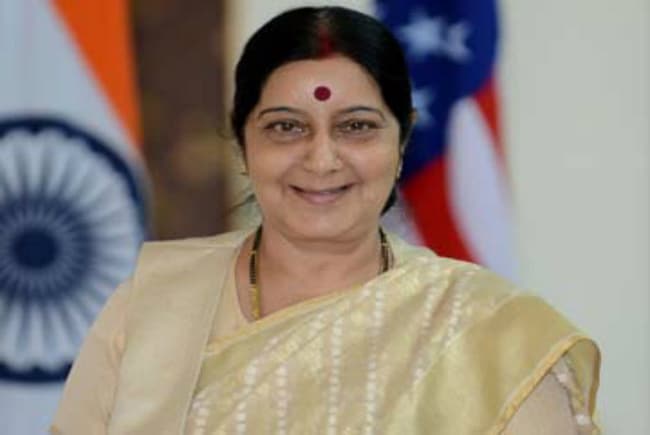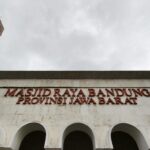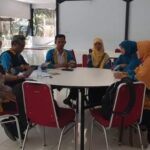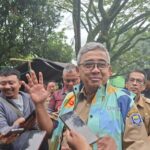Jakarta: External Affairs Minister Sushma Swaraj arrived in Jakarta today on a five-day visit to attend the 60th commemoration of the historic 1955 Asian-African Conference and the 10th anniversary of the New Asian-African Strategic Partnership.
The conference, which became the stepping stone for the Non-Aligned Movement during the Cold War era, is expected to adopt three declarations – the Bandung Message 2015: Strengthening South-South Cooperation to Promote World Peace and Prosperity, a declaration on reinvigorating the New Asian-African Strategic Partnership, and a declaration on Palestine.
Swaraj is accompanied by senior diplomats from the Ministry and will participate in numerous bilateral and multilateral discussions during the conference, which includes participation from 53 countries, including 22 Heads of State.
The Minister is expected to hold bilateral meetings with the President of Vietnam, the President and Vice-President of Indonesia, the Prime Ministers of Nepal, Singapore, Rwanda, and Palestine, as well as her counterparts from Fiji, Papua New Guinea, Morocco, Tunisia, and Timor-Leste.
The 1955 conference, led by Indonesia’s independence hero Sukarno, brought together eminent leaders such as Egypt’s Gamal Abdel Nasser and India’s Prime Minister Jawaharlal Nehru, whose famous ‘Panchsheel’ doctrine was incorporated into the 10 principles of international peace and cooperation in the declaration.
Swaraj will also participate in a historical walk in Bandung to mark the moment 60 years ago when leaders of 29 Asian and African countries walked together and joined hands in the First Asian African Conference.
Prime Minister Narendra Modi was unable to attend the conference due to the ongoing Budget Session of Parliament.
He had written to the Indonesian President expressing regret for not being able to attend the meeting. In the letter, the Prime Minister also invited the President to visit India and said he looked forward to visiting Indonesia at a mutually convenient time.
Asserting that he attaches extraordinary importance to bilateral relations with Indonesia, Modi stated that there is much in our proximity, history, culture, and now, the sheer democratic values and our roles as two major emerging Asian nations that impart great strategic importance to our partnership.
Noting that in these 60 years, Asia has seen unprecedented economic progress, the rise of democracy, and the elimination of poverty, Modi said it must still deal with unresolved questions and unsettled issues for enduring peace and prosperity in the region.
Asian-African Conference
The Asian-African Conference, also known as the Bandung Conference, was a historic 1955 meeting of Asian and African states, most of which were newly independent. It was organized by Indonesia, Myanmar, Sri Lanka, India, and Pakistan to promote Afro-Asian economic and cultural cooperation and to oppose colonialism. The conference is widely seen as a precursor to the Non-Aligned Movement and a defining moment in the history of the Global South.
Non-Aligned Movement
The Non-Aligned Movement (NAM) is a forum of 120 countries that are not formally aligned with or against any major power bloc. It was founded in 1961 during the Cold War by leaders such as India’s Nehru, Egypt’s Nasser, and Yugoslavia’s Tito, with the aim of promoting peace, independence, and cooperation among developing nations. Today, it continues to advocate for national sovereignty and a more equitable international political and economic order.
Bandung Message 2015
The Bandung Message 2015 is a declaration issued to commemorate the 60th anniversary of the 1955 Asian-African Conference (the Bandung Conference). It reaffirmed the original conference’s principles of promoting world peace and cooperation among developing nations, while also addressing new global challenges of the 21st century.
New Asian-African Strategic Partnership
The New Asian-African Strategic Partnership (NAASP) is not a physical place but a cooperative framework established in 2005 to strengthen ties and promote peace, prosperity, and progress between Asian and African nations. It was formed during the commemoration of the 50th anniversary of the historic 1955 Bandung Conference, which itself was a seminal meeting that promoted Afro-Asian economic and cultural cooperation and opposed colonialism. The partnership aims to foster greater South-South cooperation on political, economic, and sociocultural issues.
Panchsheel
“Panchsheel” refers to the Five Principles of Peaceful Coexistence, a set of principles to govern relations between states. It was first formally codified in the 1954 Sino-Indian Agreement, but its philosophical roots are drawn from ancient Indian concepts of statecraft and Buddhist principles. The principles emphasize mutual respect for sovereignty, non-aggression, and peaceful coexistence.
Bandung
Bandung is the capital of West Java, Indonesia, famously known as the “Paris of Java” for its colonial-era architecture, vibrant art deco buildings, and lush surroundings. Historically, it gained prominence as a resort destination for Dutch plantation owners in the 19th century and was the host of the pivotal 1955 Asia-Africa Conference, which aimed to promote economic and cultural cooperation among developing nations.
First Asian African Conference
The First Asian African Conference, also known as the Bandung Conference, was a historic meeting of Asian and African states held in Bandung, Indonesia, in April 1955. It was a major milestone in the decolonization process and the birth of the Non-Aligned Movement, promoting cooperation and opposing colonialism. The conference’s principles, known as the “Bandung Principles,” advocated for world peace and cooperation.
Budget Session of Parliament
The Budget Session is one of the three annual sittings of the Indian Parliament, historically convened primarily to present, discuss, and approve the Union Budget for the upcoming financial year. It typically begins in late January or February and is a key constitutional event where the government outlines its economic policies and expenditures.






